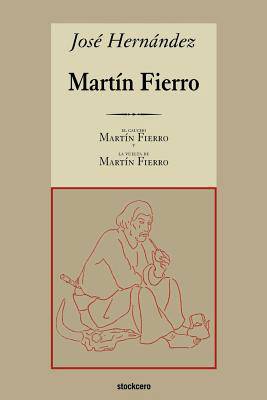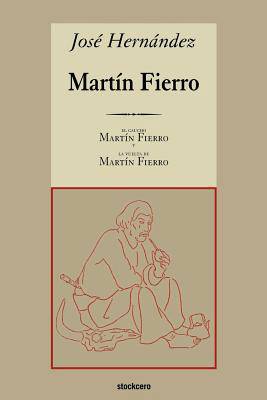
Bedankt voor het vertrouwen het afgelopen jaar! Om jou te bedanken bieden we GRATIS verzending (in België) aan op alles gedurende de hele maand januari.
- Afhalen na 1 uur in een winkel met voorraad
- In januari gratis thuislevering in België
- Ruim aanbod met 7 miljoen producten
Bedankt voor het vertrouwen het afgelopen jaar! Om jou te bedanken bieden we GRATIS verzending (in België) aan op alles gedurende de hele maand januari.
- Afhalen na 1 uur in een winkel met voorraad
- In januari gratis thuislevering in België
- Ruim aanbod met 7 miljoen producten
Zoeken
Omschrijving
The Martin Fierro, the classic argentine poem, has been the subject of studies and discussions ever since the issuing of its first part edition -el gaucho Martin Fierro- in 1873, and there have been many ensuing editions, including some still available, to prove it. This new edition of both parts aims to render a balanced startpoint to the study of the literary piece. This edition is based on the original texts: El gaucho Martín Fierro Imprenta de La Pampa, 1872, and La vuelta de Martín Fierro Librería del Plata, 1879, and includes no less than 535 lexicographic notes, conveniently placed at the bottom of the pages and intended to help the modern reader grasp the exact meaning of the text without obtrusive lengthy interruptions. The notes were made by comparing the critical editions by Eleuterio F. Tiscornia, Ed. Losada, Buenos Aires, 1941; by Carlos Alberto Leumann, Ed. Angel de Estrada, Buenos Aires, 1945; and by Santiago M. Lugones, Ed. Centurión, Buenos Aires, 1948; their own notes compared between them and with the critical edition by Elida Lois and Angel Nuñez, Ed. ALLCA XX (Association Archives de la Littérature Latinoaméricaine, des Caraïbes et Africaine du XX Siècle), Paris 2001; with the notes by Leopoldo Lugones in El payador, Ed. Centurión, Bs. As. 1948 (and Stockcero 2004), those of Francisco Castro in Vocabulario y frases del Martín Fierro, Ed. Kraft, Bs. As. 1950, and those of Domingo Bravo in El Quichua en el Martín Fierro y Don Segundo Sombra, Ed. Instituto Amigos del Libro Argentino, Bs. As. 1968.
Specificaties
Betrokkenen
- Auteur(s):
- Uitgeverij:
Inhoud
- Aantal bladzijden:
- 180
- Taal:
- Spaans
Eigenschappen
- Productcode (EAN):
- 9789871136209
- Verschijningsdatum:
- 21/09/2004
- Uitvoering:
- Paperback
- Formaat:
- Trade paperback (VS)
- Afmetingen:
- 164 mm x 215 mm
- Gewicht:
- 272 g

Alleen bij Standaard Boekhandel
+ 68 punten op je klantenkaart van Standaard Boekhandel
Beoordelingen
We publiceren alleen reviews die voldoen aan de voorwaarden voor reviews. Bekijk onze voorwaarden voor reviews.









